
Gbola Amusa is Partner, Director of Research and Head of Healthcare Research of Chardan. Dr. Gbola Amusa joined Chardan at the end of 2014 to focus on identifying companies that will generate exceptionally high long-term investment returns by creating shared value for society. Dr. Amusa was previously Managing Director, Head of European Pharma Research, and Global Pharma and Biotech Coordinator at UBS, where he oversaw 25 analysts and ultimately finished as the number-one-ranked European pharma analyst in the Institutional Investor — II — Survey.
Prior to UBS, Dr. Amusa was a Senior Research Analyst and Head of European Pharma research at Sanford Bernstein. He started his career in finance at Goldman Sachs as an associate in the Healthcare Investment Banking Group, where he worked on large transactions including the Amgen/Immunex merger. Dr. Amusa earned his BSE from Duke University, an M.D. at Washington University Medical School and his MBA from the University of Chicago Booth School of Business.
In this exclusive 5,116 word interview, exclusively in the Wall Street Transcript, Dr. Amusa reveals his top picks and details his reasoning.
“MeiraGTx (NASDAQ:MGTX) is easy in that it is a company that will have readouts this year on four different assets and yet the company’s market cap is closer to $300 million, which basically prices futility on all data. By the end of the year, the company may have something like eight or nine products in the clinic. Companies that have had that many products in the clinic typically trade over a billion in market cap.
You really just need one of the four data sets this year. Presumably, four or more data sets will come in 2020, and you therefore just need one of the data sets in 2019 or 2020 to be very positive and the stock would have the potential to go past a billion dollars in market cap.”
Get the full 5,116 word interview for the other top picks and more from this award winning equity analyst.

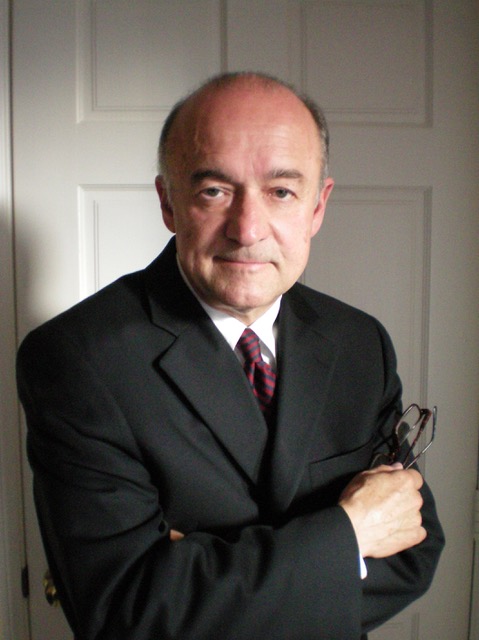
Carl M. Wiese is a Founder and Portfolio Manager for GROW Funds LLC and has over 30 years of investment management experience. Mr. Wiese is an adjunct professor at the University of San Diego and the Education Chair for the CFA Society of San Diego.
Prior to launching GROW, Mr. Wiese was a Principal and Portfolio Manager at Wall Street Associates — $3 billion in AUM — where he was responsible for micro, small and midcap investment strategy and was a member of the investment management team for 12 years.
Michael Collins is a Founder and Portfolio Manager for GROW Funds LLC. Mr. Collins’ career has spanned over 50 years starting as an investment banker and the last 30 years as a registered investment adviser. He has been a founder of several companies and served on the boards of the National Association of Securities Dealers and the CFA Society of San Diego.
In this 2,251 word interview exclusive to the Wall Street Transcript, Mr. Collins and Mr. Wiese explain their portfolio management techniques and their top picks.
“I will get away from software here and talk about health care. Tandem Diabetes Care (NASDAQ:TNDM) is actually a local San Diego company. They develop and manufacture insulin pumps for diabetics. They have what we believe is the best pump in the market today called the t:slim X2 Basal-IQ.
It’s taking market share from Medtronic (NYSE:MDT), the largest provider in the marketplace. Not only that, Johnson & Johnson (NYSE:JNJ), their Animas division, recently exited the market, creating an opportunity for Tandem to take share with those patients as well.”
Another top pick reveals their growth bias:
“Telecommunications is a $50 billion market globally. RingCentral is taking market share from more traditional providers such as Avaya (NYSE:AVYA) and Cisco (NASDAQ:CSCO). In fact, after trying to do it themselves, AT&T (NYSE:T) recently came back to RingCentral as a partner.
RingCentral is growing revenues in the mid-30% range and has recently added customers such as Columbia University, the Financial Times and Golden State Warriors to name a few.”
Get more investing philosophy along with top stock picks by reading the entire 2,251 word interview, exclusive to the Wall Street Transcript.
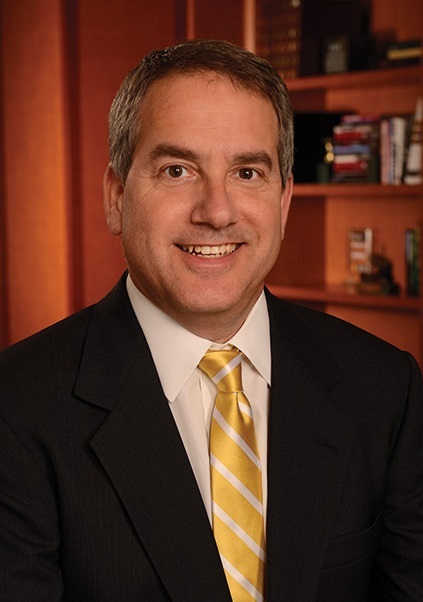
Eli Pars, CFA, is Co-Chief Investment Officer, Head of Alternative Strategies, Co-Head of Convertible Strategies and Senior Co-Portfolio Manager at Calamos Investments. As a Co-CIO, Mr. Pars is responsible for oversight of investment team resources, investment processes, performance and risk.
He also manages investment team members and has portfolio management responsibilities. He is a member of the Calamos Investment Committee, which is charged with providing a top-down framework, maintaining oversight of risk and performance metrics, and evaluating investment process.
In his exclusive 2,991 word interview in the Wall Street Transcript, Mr. Pars explains his investing strategy:
“…We walk in every day and say, “OK, what’s the option market giving us, and how can we have a better trade with the constraint that we want to have, at least a 40 delta of protection to the downside? And we want to have at least 40% notional value of puts. With those constraints, can we find a better hedge?” And a lot of times, we can.”
His market stance is on the positive returns side:
“Obviously, with the Fed guidance and the market expectations that we’re not going to see a lot of increases in the next 12 months, maybe none, with inflation still generally below the Fed’s 2% target, you can make a compelling argument that they really should hold off until they really see some inflation.
Janet Yellen, back when she was Fed Chair, made some comments about how the 2% target should be an average. And so if they spend a lot of time below the 2% target, they should spend theoretically some time above it.
And the fact that we’ve only been above the 2% target for a quarter I think once in the last 10 years, I believe is correct, but certainly not very often. You can make the case that maybe the Fed should be on hold for a little while here.”
The desire to pick stocks reveals a top pick from Mr. Pars:
“One name that we’ve been in and out of over the years — it’s been active in the convertible market and some of our convertible strategies — is Salesforce.com (NYSE:CRM). And optically it hasn’t looked cheap really ever since it’s been a public company. But the stock’s up whatever, 15-, 20-, 30-fold, whatever it is, because they’ve continued to grow.”
Get the complete market picture from this experienced portfolio manager in this exclusive 2,991 word interview, only in the Wall Street Transcript.
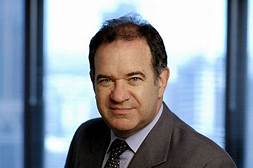
Silviu Itescu, MBBS, FRACP, is Chief Executive Officer and Managing Director of Mesoblast Limited. Dr. Itescu has served on Mesoblast’s board of directors since the company’s founding in 2004, was Executive Director from 2007, and became Chief Executive Officer and Managing Director in 2011.
Prior to founding Mesoblast in 2004, he established an international reputation as a physician scientist in the fields of stem cell biology, autoimmune diseases, organ transplantation and heart failure. Dr. Itescu has been a faculty member of Columbia University in New York, and the University of Melbourne and Monash University in Australia.
In 2013, Dr. Itescu received the inaugural Key Innovator Award from the Vatican’s Pontifical Council for Culture for his leadership in translational science and clinical medicine in relation to adult stem cell therapy.
In this 4,007 word interview, exclusive to the Wall Street Transcript, Dr. Itescu describes the upside of his company for investors:
“We currently have three Phase III assets and, through a licensing partner, have the first approved product using industrially scalable mesenchymal lineage cells in the world. That product is in Japan through our licensee, JCR Pharmaceuticals.
A second product will be launched in Europe shortly by our technology licensee, Takeda Pharmaceuticals. We believe that we will have the first industrially manufactured mesenchymal lineage product launched and approved in the U.S. over the coming period.”
The product is nearing an approval in the United States:
“You can imagine seeking a cure for the underlying leukemia and then getting this devastating complication of graft versus host disease, which has a very high mortality in its most severe forms. It is a terrible complication.
There is nothing that is approved other than steroids in the first instance. Also, 50% of people will fail steroids. After steroids, nothing else is approved anywhere in the world other than our mesenchymal lineage product in Japan. So we’ve been very pleased that this product was approved.
It has received very good reimbursement. We believe that since the launch of the product, the adoption rates by clinicians approximates about 50% of our expected addressable market. So we are very pleased by the uptake and the way it has performed.
We are aware of no safety issues. It gives us great insight into how we would expect a similar drug to perform once it has launched in the United States. We will be filing with the FDA for the same product very shortly.
We have been using it now in the United States for several years under an expanded access program, so over 240 children have already received this in the United States.
We have performed a very rigorous Phase III trial that demonstrated similar data to what we had generated in the earlier EAP program.”
Get the complete 4,007 word interview, exclusively in the Wall Street Transcript.
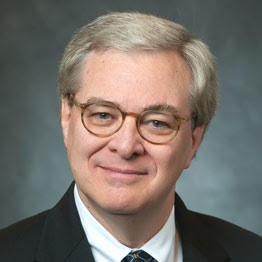
Paul W. Greenwell is a Principal of Luther King Capital Management — LKCM. He joined the firm in 1983 and serves as a portfolio manager and the retail analyst. Prior to joining LKCM, Mr. Greenwell was a Senior Vice President in charge of Trust Investments for Austin National Bank; Senior Vice President, InterFirst/Austin; Trust Investment Officer for Hibernia National Bank; and Senior Security Analyst/Trust Investment Officer for American Security & Trust Co.
Mr. Greenwell received a Bachelor of Science degree from the University of Missouri.
In this 3,213 word interview, exclusively in the Wall Street Transcript, the long term investor outlines his optimistic outlook on the US economy and the stock picks that result:
“I think there’s been a lot of skepticism largely related to the magnitude and the duration of the recovery from a stock market standpoint. From an economic standpoint, while there’s been pretty good growth over the last 10 years, really the acceleration has only come subsequent to the tax change.
And I think there is a natural built-in skepticism that, hey, this economic cycle has gone on too long, and we’re likely to see some pullback in that. Our view would be that these cycles don’t die just of old age. They typically need an event that may be not seen, such as a Federal Reserve monetary event that’s caused by the Federal Reserve becoming too restrictive.
…The problem comes in, of course, when there’s a bear market like the fourth quarter last year; human nature being what it is, the tendency is for many to say, “No, I don’t want to do this anymore,” and they don’t become interested until the market has already recovered and the news is better.
So what we encourage clients to do is to try to be an investor in excellent businesses for long periods. And when you have a diversified portfolio over long periods of time, that we believe works very well. And our clients have been well-rewarded for that.”
Read the rest of this 3,213 word stock market review from an experienced money manager, exclusively in the Wall Street Transcript.

Robert Henderson is a Portfolio Manager at RBC Global Asset Management Inc. — RBC GAM — in Boston. In this capacity, he serves as the lead portfolio manager for RBC GAM’s Mid Cap Value Strategy. In addition to his portfolio management responsibilities, Mr. Henderson provides research analysis support to strategies managed by RBC GAM’s Boston-based Enterprise team.
Before joining RBC GAM in 2018, Robert focused on small- and micro-cap equities, as well as exposure to international and domestic large- and mid-cap equities with Rutabaga Capital Management and MFS Investment Management. He holds an undergraduate degree from Harvard College and an MBA from Stanford University.
In this exclusive 2,673 word interview in the Wall Street Transcript, the portfolio manager explains his value strategy and highlights his top picks for 2019:
“…We pay attention to special situations. For example, when a company is bankrupt for a while, but it’s an important player, and then it comes out of bankruptcy, there’s an opportunity there. We also pay attention to when companies exit certain businesses, or are being bought out or taken over, or maybe a new company deciding to go into an industry.”
An example of this stock picking strategy is their Puerto Rican investment strategy.
“This large Puerto Rican bank has some operations in the U.S., but it is by far the market share leader in Puerto Rico. This stock was taken down with the entire Puerto Rican bank sector, not only because of the recession, the financial crisis on the island, but really the final thing was the two major hurricanes that hit the island in 2017, which really caused very serious disruption and an even deeper recession on the island.
Fortunately, when that happened, the island started to get out of this financial crisis by renegotiating some of the important parts of the government debt. Even more importantly than that, after the hurricanes happened, a lot of insurance money and other recovery money rushed into the island. So the economy started to recover after the hurricane, and it’s still in a recovery process right now.
This large bank is recovering very nicely now.”
Get the rest of this stock picker’s outlook by reading the entire 2,673 word interview, exclusively in the Wall Street Transcript.
It’s important for investors to keep track on the repercussions of the UK’s exit from the European Union — except what will those be?
One bright shining spot in the British economy has been its leading edge biotech and pharmaceutical industry, powered by the oldest and best universities on the planet, a tradition of charitable foundations willing to fund research and development in biology and the hard sciences, and an efficient, rational and deliberate economic approach to paying for the healthcare of all of its citizens.
Let’s take one example, Oxford Biomedica, a small cap publicly traded UK based biotech that is on the frontier of genetic therapy. Way back in 1996, the company was spun out of Oxford University.
In 2003 an interview with its CEO at the time reveals the value of functioning capital markets willing to back risk taking entrepreneurs:
“We went pretty much straight to the public markets in London at that time. There was a new market called the Alternative Investment Market.
We went on to that, raised some initial funds in 1996 and then between 1996 and 2001, raised various amounts of money on the public markets, culminating in the spring of 2001 when we raised 35 million and moved to the main list of the London Stock Exchange. So overall we’ve taken about 65 million, $95 million out of the public markets.”
Of course, investors in the company in 2003 probably did not expect a 16 year wait for a product to hit the market, not to mention those investors who bought at the IPO in 1996.
However, now the company has a product, produced in coordination with Novartis, that is approved in the US, the EU and in Japan.
This product is a cure for children with advanced cancer that has resisted all treatment options.
In the words of its current CFO, Stuart Paynter:
“Kymriah, the Novartis product for pediatric acute lymphoblastic lymphoma that is also now approved for diffuse large B-cell lymphoma — DLBCL — is cleared by regulators in the U.S. and EU. It has been approved by the EMA — European Medicines Agency — and is going through the process to launch in 27 EU member states.
There are only three gene therapies marketed in the world at the moment, and this is one of them.”
Oxford Biomedica has the patent for the novel fashion for delivery of this gene editing therapy, specifically by packaging it within the lentivirus:
“In terms of our uniqueness, we have safety patents on the lentivector platform out to 2023 and some manufacturing patents that go out to the end of the 2020s and into the 2030s.
At the moment, we are the only launched lentivector, and that makes it difficult to compare our lentivectors with others. What we can say is that we have spent 20 years’ experience developing these lentivectors, and they are quite difficult to produce, so we have a healthy amount of I.P. protection.”
To put it another way, the special Coca Cola formula that cures cancer that Novartis is producing is bottled in the Oxford Biomedica patented bottles, bottles that are especially difficult to make.
This company is also producing the bottles for many, many other drugs in development stage on the behalf of cutting edge biotechs seeking cures for a variety of particularly destructive diseases.
The unique technological expertise is touted by its management:
“…It shouldn’t be underestimated how important the analytics are postproduction to make sure that your lentivector is doing what it was designed to do.
We spend months postproduction doing analytical testing using FDA-approved quality systems to make sure that lentivector is doing everything that is required.
We cannot do the direct analytical comparisons, but in terms of know-how, we are confident we are a number of years ahead of our competition in terms of lenti manufacture, in terms of scale and quality.”
What will Brexit do to this 30 year old overnight success story in the making?
The collaboration for the current cancer cure is with a Swiss based company and is dependent on multiple national and international pharmaceutical approvals, probably the most complex scientific and legal process for businesses. But even before that, the company must negotiate with its partners for a royalty agreement that bind them to payouts if their research is eventually successful.
Oxford Biomedica is now in the somewhat enviable position of having demand side pressures to increase their capacity since this sector of genetic therapy is growing so quickly that labs that process even the small batches for research are in great demand.
Recent deals illustrate this demand. Thermo Fisher is paying $1.7 billion for the viral vector for gene therapy clinical trial producer Brammer Bio, and in February of 2019, Danaher agreed to pay $21 billion for General Electric’s biopharma business, a maker of equipment for biotech drug production.
So, this business sector is hot.
Oxford Biomedica is building their lab expansion now and is planning to more than double its capacity every year.
This requires sophisticated high end lab equipment sourced globally and sophisticated high end biologists also sourced globally.
Will Brexit cripple the company by limiting access to both equipment and talent?
It’s not as if the EU is a poster child for rational economic development. The creation of costly business regulations for the common market is through a voting process for elaborate legislation that often confuses its legislators into voting for the wrong regulation.
In the words of one European voting data collection agency:
“Because they have to vote on hundreds of items every week, MEPs sometimes forget to press the voting button, or press the wrong voting button. Sometimes the voting machines malfunction. When that happens they can enter a statement into the official record, the minutes, to the effect that they had intended to vote but didn’t or couldn’t, or that they had intended to vote differently.
However, this formal statement does not have the effect of altering their individual vote, and nor does it have an impact on the overall result. Once the President has announced the result of the vote it is final.”
As British politicians debate about how they plan to eat their own Brexit cooking, entrepreneurs are left with the compounding of risk. Will the laboratory equipment be held up at the port? Will scientists not be allowed to travel and work throughout the world?
To be sure, none of this is only a British problem but as committed investors funding this process we can only hope that scarce capital and scarce labor will be permitted to flow to its most productive outlet.
We can all only hope that the cure for cancer in children does not become a victim.
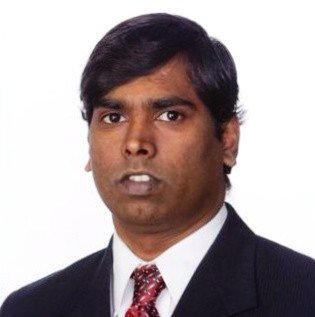

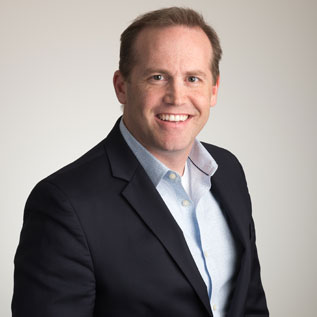
Kumaraguru Raja, Ph.D., MBA, is Vice President, Biotechnology Research at Noble Life Science Partners. Dr. Raja has significant experience as an Equity Analyst in the health care industry with a focus on biotechnology sector. Previously, he was an Senior Associate Analyst for over five years on the Citi Research biotechnology team that has been continuously ranked highly for biotechnology in the All-America Institutional Investor survey.
Dr. Raja’s expertise includes bottom-up scientific, financial analysis on companies across therapeutic areas and spectrum of market capitalizations. Dr. Raja has strong quantitative, scientific background with in-depth biotechnology and health care industry knowledge leveraged to identify compelling investment opportunities.
Dr. Raja conducted post-doctoral research at Mayo Clinic to understand the epigenetic causes of cancer and at Los Angeles Biomedical Research Institute to elucidate the molecular mechanisms concerning the role of human bone marrow stem cells in normal and leukemic hematopoiesis.
He received his Ph.D. in biological sciences from Bowling Green State University and MBA from University of California, San Diego. In his 2,010 word interview, exclusively with the Wall Street Transcript, Dr. Raja reviews his top biotech and gene therapy stock picks and details his rationale. One pick is on the cusp of having a key treatment approved.
“SCYNEXIS (NASDAQ:SCYX) is developing drugs for antifungal infections and conducting two Phase III trials in women with recurrent vulvovaginal candidiasis. Data is expected in 2020. It recently released data from the hospital setting on patients who do not respond to currently available antifungal treatments. They showed good response to SCYNEXIS’ drug ibrexafungerp. So this is an exciting company at about a $50 million market cap. Obviously, this will be a catalyst in 2020.”
In his exclusive 3,951 word interview in the Wall Street Transcript, Marco Taglietti, M.D., the President and Chief Executive Officer of SCYNEXIS, explains why this is only the first step for value creation for SCYX investors:
“An oral product is extremely critical because when patients start to recover in the hospital, we need to treat them and send these patients home for many reasons but, in part, to avoid contraction of hospital-based fungal infections.
For many cancer and transplant patients, a major risk factor is acquiring infections, unfortunately, so sending them back home is really a significant and important step in the management of these patients. However, you can send them home only if you have an oral product.
As I mentioned, the only product that is currently available orally are products belonging to the azole class, and they are becoming less and less effective. We believe our product will really be an important player in the future.”
Another top pick from Dr. Raja is the now super hot gene therapy sub-sector, RNA delivery platform technology:
“Arcturus Therapeutics (NASDAQ:ARCT) that is leveraging the mRNA delivery mechanism to treat various infectious diseases and orphan diseases. The preclinical data and overall technology are strong…The Big Pharma partners believe that the technology has some validation, so that is the reason for all these collaborations. It has collaborations with Johnson & Johnson (NYSE:JNJ), Takeda (NYSE:TAK) and Ultragenyx (NASDAQ:RARE) that are helping to fund development of a preclinical pipeline. ”
In his own exclusive 3,316 word interview with the Wall Street Transcript, the CEO of Arcturus, Joseph Payne, amplifies this investment thesis: “Arcturus’ OTC mRNA medicine will be one the first of its kind as a chronically dosed intravenous messenger RNA therapeutic. Why is that significant? Because it will begin to fill a large white space opportunity for intravenous messenger RNA that is enormous. We are excited to potentially be the first or one of the first ones to do so.”
Read all three of these in-depth exclusive interviews in the Wall Street Transcript, along with many more.
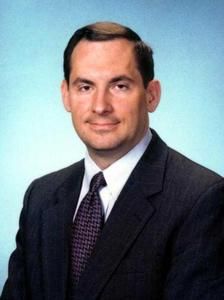
Steve Brozak is Managing Partner and President of WBB Securities, LLC. Dr. Brozak leads WBB Securities, LLC, an investment bank and financial analytical firm engaged in the pharmaceutical, biotechnology and medical device sectors. He has actively followed the evolving health care space over the last two decades and has written about and advised both health care companies and U.S. government agencies.
The Wall Street Journal named Dr. Brozak as the “Best on the Street” Financial Analyst for the medical equipment and supplies category in its 19th Annual Best on the Street survey. In 2013, Dr. Brozak was a top-ranked analyst in the pharmaceutical industry based on his 12-month performance returns by Thomson Reuters and StarMine, and is also a top-ranked biotech analyst.
Dr. Brozak is a retired lieutenant colonel in the United States Marine Corps and served on the Secretary of the Navy’s Navy and Marine Corps Retiree Council, where he focused on health care. Dr. Brozak holds a B.A. and MBA from Columbia University and his Doctorate in Medical Humanities — DMH — from Drew University.
In this exclusive 3,842 word interview in the Wall Street Transcript, Dr. Brozak explores current health care landscape and the economic implications for biotech stock investors.
“For the first time, you have true visibility and attention to prices and their proverbial values — something that we have never seen before. Everyone has always talked about this kind of focus, but we have never seen it. One aspect of this focus is the newly emerged examination of the pharmacy benefit manager — PBM — space, which has played an integral part in pharma and biotech.
This is something of a Pandora’s box. We have opened it, and the nascent steps to health care transparency are starting to be taken and with them the challenge to drug pricing and eventually even a quantification tied to patient outcomes.”
One result of this analysis is a top pick from Dr. Brozak:
“RedHill [RedHill Biopharma (NASDAQ:RDHL)],approach shuts down the causative agent of Crohn’s disease. RedHill has run clinical trials in which they have shown success in doing this.
Topline data from a recent Phase III study basically showed that an antibiotic combination therapy actually shut down Crohn’s in patients with statistically significant results.”
Get the full detail on this and many other picks from Dr. Brozak in the complete 3,842 word interview, only in the Wall Street Transcript.
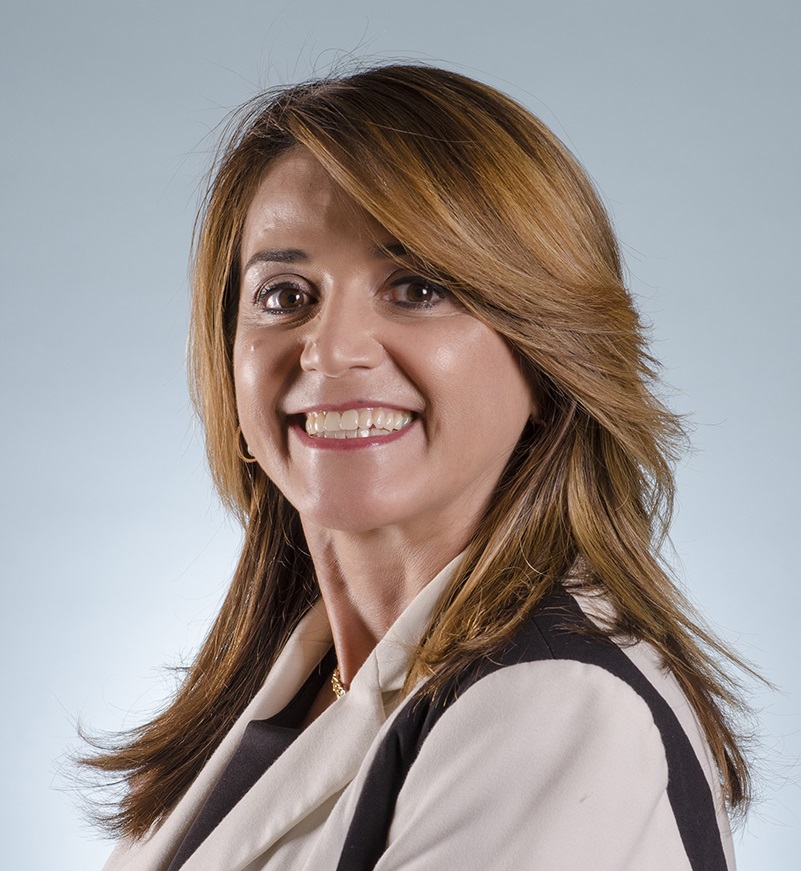
Nancy Perez, CFA, is a Senior Portfolio Manager and Managing Director of Boston Private, a leading provider of fully integrated wealth management, trust and private banking services. She started her career about 30 years ago at Earl Foster Associates, which was a boutique RIA firm, and through subsequent mergers and acquisitions, it was purchased by Boston Private.
She currently manages two of the firm’s proprietary strategies: the dividend growth strategy and the quality growth strategy. She is also a member of the firm’s Asset Allocation and Investment Policy Committees. She graduated summa cum laude from the University of Miami.
In this exclusive 3,252 word interview in the Wall Street Transcript, Ms. Perez reviews her top picks and the diligent investing philosophy behind them:
“Royal Caribbean (NYSE:RCL), that’s one that we’ve held for a while. And I continue to think it’s one of the most attractive growth stocks at a reasonable price. It’s the second-largest operating cruise company with over 60 ships. And its brand is unique. It stands above its competitors, and it continues to drive repeat business. They continue to innovate their product lines and their ships.”
Another interesting favorite is Boeing:
“Boeing (NYSE:BA) generates over 30% return on invested capital, and they have very strong free cash flow growth. Air travel demand has been picking up as well, as some of the emerging markets have more spending power.
Given the duopoly between Airbus (OTCMKTS:EADSY), Boeing is the one that’s most leveraged to this global growth, particularly in air travel. It’s important to keep in mind, Boeing has seven years of backlog in commercial air, which should provide some stability going forward, particularly in these volatile markets.”
Get the complete picture on these picks, as well as many others in the complete 3,252 word interview with Nancy Perez of Boston Private, exclusively in the Wall Street Transcript.